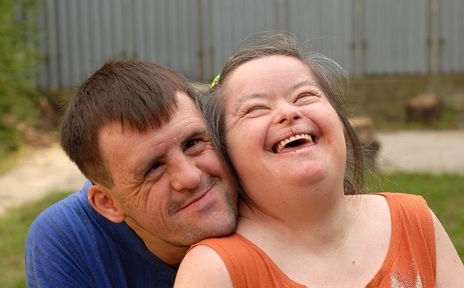People with Down's and learning disabilities miss out on dementia care
One third of people with Down’s Syndrome will have dementia in their 50s and one in 10 people with a learning disability will get young onset Alzheimer’s disease but many are 'falling through the gaps' when it comes to care, dementia experts warn.

Phil Freeman of the Dementia Action Alliance (DAA) believes those with learning disabilities and Down’s Syndrome may have dementia symptoms that present themselves differently to those without these conditions.
Mr Freeman said: “Symptoms may be mistaken for a pre-existing disability and therefore they are less likely to receive a timely diagnosis. Ultimately this means more avoidable deaths when poor judgements are made about quality of life and treatments.
“Skilled organisations need to be able to spot early warning signs in already challenging circumstances."
One in 50 people with Down’s syndrome will develop Alzheimer’s disease at the age of 30 to 39. One in 10 people with Downs aged 40-49 years-old and one in three people in their 50s will develop Alzheimer's, according to the Young Dementia UK.
One in 10 people with a learning disability will develop dementia compared to one in 14 of the wider population, according to the Alzheimer’s Society.
In a DAA meeting on 8 June, issues surrounding the treatment of those with learning disabilities and Down’s Syndrome became evident despite people with these conditions being statistically more likely to develop dementia at an earlier age.
The DAA is keen to address a shortfall of dementia care in real terms for those with Down’s Syndrome and learning disabilities, stating early diagnosis is key to treatment.
Mr Freeman said: “A person with a learning disability may not fully understand a diagnosis of dementia or what it will mean for them. Early diagnosis helps individuals understand what is happening to them and make choices about their future.
“In addition, people with a learning disability often also have other complex health needs, and this, combined with a diagnosis of dementia makes their care pathway very unclear. They fall through the gaps and don’t get the support they need – we must rectify this.”
The DAA includes: Royal College of Nurses, Mental Health Foundation, National Care Forum, Mencap, ADASS, Carers Trust, Health Education England and the Local Government Association.
Latest News
 29-Jul-24
Dementia Bus gives carehome.co.uk staff insight into life with dementia
29-Jul-24
Dementia Bus gives carehome.co.uk staff insight into life with dementia
 01-Mar-24
Find out the top care homes in 2024
01-Mar-24
Find out the top care homes in 2024
 21-Mar-23
UK's top care homes in 2023 revealed
21-Mar-23
UK's top care homes in 2023 revealed
 03-Jan-23
carehome.co.uk launches free care helpline
03-Jan-23
carehome.co.uk launches free care helpline
 13-Dec-22
5 mins with Emily Whitehurst, chief operating officer for Constantia Healthcare
13-Dec-22
5 mins with Emily Whitehurst, chief operating officer for Constantia Healthcare